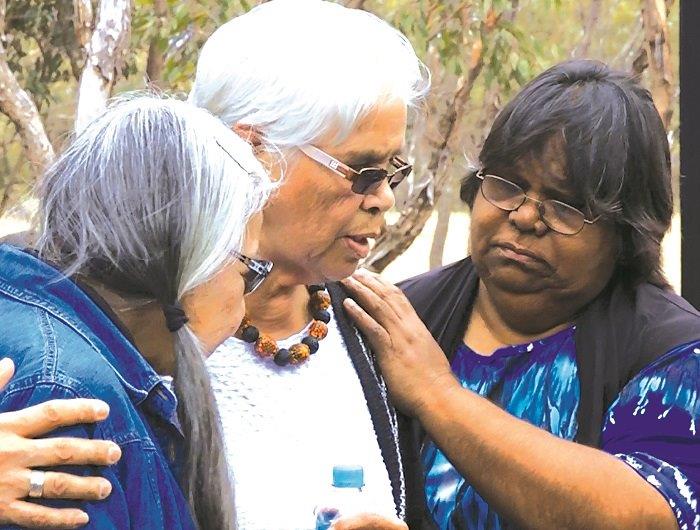Stuart McMillan, Assembly Consultant for Covenanting, shares his thoughts on remembering a Day of Mourning, annually on the Sunday before Australia Day.
This January, Uniting Church congregations across the country are being asked to hold worship services that reflect on the effect of invasion and colonisation on Australia’s First Peoples. The observance of a ‘Day of Mourning’ was endorsed by the 15th Assembly at the request of members of the Uniting Aboriginal and Islander Christian Congress (UAICC).
Rather than seeking a change to the date for Australia Day as some propose, the UAICC asked the church, in the spirit of the Covenant between us, to declare the Sunday before Australia Day as a Day of Mourning. Assembly members enthusiastically agreed.
Sunday 20 January 2019 will be the first official Uniting Church Day of Mourning with the event to become an annual fixture on the Uniting Church liturgical calendar.
Congregations, agencies and schools are encouraged to honour First Peoples on the day or in the week before 26 January by using the resources prepared, together with your own resources.
The desire is that the service and any related events acknowledge the dispossession, violence and murder of First Peoples, and lament the fact that as a church and as Second Peoples we were and remain complicit.
If that comes as a surprise to some, this is what we have already acknowledged in our church in the changes to the Preamble to the Uniting Church Constitution, approved by the Ninth Assembly in 2009 and formalised by Synods by 2011.
A Day of Mourning is not a new concept in Australia. The first such day was held on Australia Day 1938, organised by the Aborigines Progressive Association (APA) in New South Wales with support from the Australian Aborigines League (AAL) in Victoria to coincide with sesquicentenary celebrations.
Our declaration of a Day of Mourning is a way in which we stand together in covenantal relationship to honour, remember and acknowledge the truth of our history, the fallen, the wounded and their families and the next generations, just as we do in this nation on ANZAC Day each year.
On 20 January, I for one, will be reflecting on the lie of terra nullius – the claim that Australia was a land that belonged to no one – and the devastating effects this declaration had on the First Peoples of this land,together with the generational legacies which still effect First Peoples today. Where I am, I will lament, say sorry, ask for forgiveness, and pray that our nation will be led to do likewise.
For it is only through our lament and remembering that we can then together, First and Second Peoples, look with hope to the future.
I pray that one day the whole nation may, in a coming of age, fully accept this history and take a significant step towards healing for our nation.
Uniting Church Day of Mourning resources will be made available on the Assembly website assembly.uca.org.au during December.
Rev Robert Jetta, Co-chair of the WA Regional Committee of the Uniting Aboriginal and Islander Christian Congress, said that holding a Day of Mourning separate to Australia Day means that Australians can remember the truth of our history on a dedicated day.
“In years past, there’s been protests on Australia Day,” he said. “That’s not really what we want.
“We don’t want our kids growing up and thinking it’s got to be a ‘them and us’ mentality. That’s not what we’re about in the church.
“We try to get people together and try to encourage the church to remember the Day of Mourning.”
